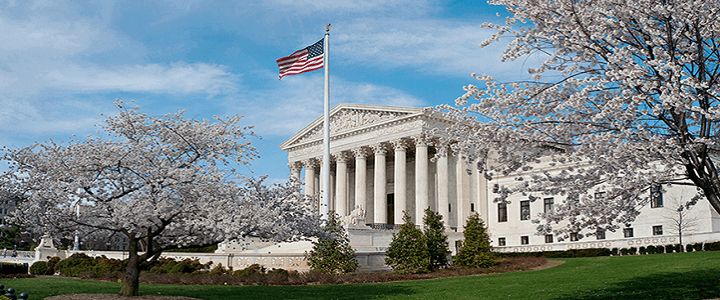Sen. Rand Paul made headlines in Washington Monday morning by suggesting the White House revoke the security clearance of former CIA Director John Brennan. Paul’s request came just a few days after a Fox News correspondent suggested John Brennan had politicized his security clearance, and was using it to make attacks against the White House.
Asked about Paul’s comments, White House Press Secretary Sarah Huckabee Sanders confirmed the president was considering revoking the security clearances of not just Brennan, but also James Comey, former FBI director, James Clapper, former director of the Office of National Intelligence, Susan Rice, former National Security Advisor, and Michael Hayden, CIA director and NSA director during the Bush administration.
What is the Policy?
Paul makes a few specific accusations against Brennan, which are at the heart of the current kerfuffle over former officials and access to classified information – is Brennan using information he learned as a part of his former role, and directly related to national security, to accuse the president of treason, and to promote his cable television commentary? If the government finds grounds to say, yes, he has access to classified information and he is using it in a non-official capacity, there is a precedent for prosecution – but that may not have anything to do with his security clearance.
In fact, it’s unclear if Brennan or other officials still retain their security clearances at all. Because access to classified information is based on need to know, the security clearances of officials such as Brennan and Comey would only be active if they were sponsored by a government agency or contracting company which required them to have access. Obviously they still retain the knowledge of their decades of federal service, but that’s very different from them actively retaining a Top Secret security clearance and wielding it to their own advantage.
“Typically, senior government officials keep their security clearance eligibility when they leave office – even if they are no longer government employees,” said Evan Lesser, founder and president of ClearanceJobs. “This is done to ensure continuity between administrations, allow former officials to consult government and industry on national security matters, and keep senior people readily available in the event of an emergency. While they may maintain their eligibility, their access to classified information remains on a need-to-know basis like everyone else. Ultimately, the president has the power to grant or revoke security clearances to whomever he chooses.”
When it comes to the security clearances of former officials, a clearance revocation would also be more likely to come through their agencies, or officials, versus a White House mandate.
“As former directors of the FBI and CIA, their respective agencies would be the authority to terminate a security clearance,” noted Christopher Burgess, veteran CIA officer and a regular contributor to ClearanceJobs.com. “As both the FBI and the CIA are agencies which fall under the control of the executive branch (the president), the request to the current directors of the FBI and CIA would be the mechanism by which I would expect the request to be made, as these individuals do have the ability to summarily terminate access and employment.”
And while there is no precedent for a president making a unilateral decision to approve or grant clearances in the past, there have been officials who have been similarly accused of maintaining access to classified information despite their official roles coming to a close.
John Deutch held a short tenure as the director of the CIA. After being ousted in 1996, he was found to have several incorrectly labeled laptops with classified information in his possession. Attorney General Janet Reno required an investigation into Deutch’s security clearance, recommending revocation. Deutch pled guilty to a misdemeanor of mishandling government secrets. He was later pardoned by then-President Clinton.
Who Has a Security Clearance, and Who Gives Security Clearances?
The question of whether or not Brennan and other former White House officials still have security clearances may come down to a matter of semantics. Security clearances are never ‘given’ to individuals – access is granted to specific positions, and individuals are vetted for eligibility to access classified information based on their need to know. The term security clearance is used much less frequently in policy than the term ‘eligibility to access classified information‘ (which just doesn’t quite roll off the tongue the same way). Brennan and other former officials retain their eligibility to access classified information unless a decision to revoke that eligibility is made. Officials would maintain a ‘current’ security clearance for two years after leaving an official government position – assuming their investigation hasn’t expired. But that doesn’t mean they have classified laptops at their houses, or they’re culling classified information from the NSA – unless they have an official government position to justify doing so, or they’re violating policy (which is where a decision to prosecute, rather than simply revoke a clearance, would likely come in).
Policy aside, when it comes to issues of national security, the White House has a Trump card. (And we’re not talking about the president’s Twitter feed).
“Per longstanding Supreme Court precedent, the president’s authority over security clearance matters is both constitutional and plenary. Although there is no known precedent for the action proposed by the White House, nothing legally prevents the president from unilaterally granting, denying, or revoking a security clearance,” said Sean Bigley, national security attorney and managing partner at Bigley Ranish.




